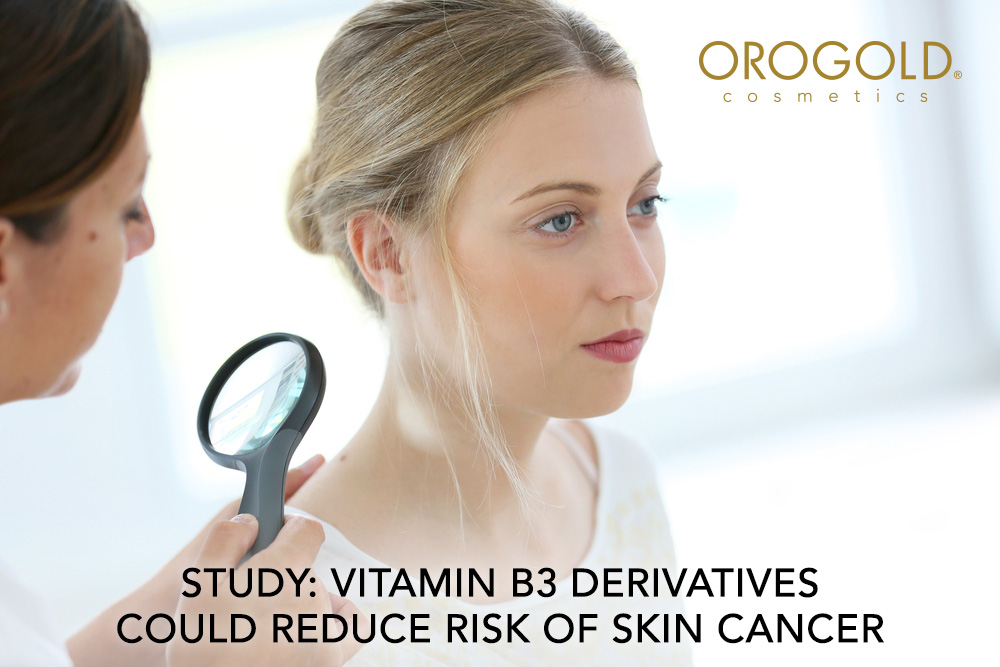Study: Vitamin B3 Derivatives Could Reduce Risk of Skin Cancer

Finding new cancer treatments is an ongoing task for doctors across the world. The difficulty in the task comes from the fact that they must research each form of cancer to determine appropriate responses that can aid the body against the disease or slow it. There may have been a minor breakthrough in the treatment of some skin cancers according to recently shared findings. The treatment isn’t a cure, but it did show a statistically significant ability to slow the rate of specific kinds of skin cancer. We wish to explain these apparent findings as clearly as possible. Taking care of your skin and avoiding the sun is a decent way to try to minimize the chance of skin cancer. It doesn’t always work though. That makes keeping up on treatments a good idea for many people.
Background Information
One thing that we need to clarify immediately is the phrase “statistically significant”. The term is rather cold and abstract without conveying much beyond a “probably” to anyone outside of scientific fields. You can best understand the phrase as meaning that the results of a study or treatment are clear enough, even against the background noise of false positives, to have merit for further study. In short, it works, but it might not be the most obvious success to most people. Another thing that needs to be discussed is the method of treatment for the researchers. They used a derivative of vitamin B to affect the rate of cancers in this study. We’ve previously discussed the vitamins useful to your body in another article, but would like to remind everyone that vitamin B is a cluster of similar nutrients usable by the body. Each version of vitamin B benefits you differently. In this case, the doctors used B3 (niacin).
The Findings
The first thing to be aware of is that nothing in these findings applies to melanoma. Many other researchers are looking into viable treatment options for that particularly potent skin cancer, but this research can’t claim to add to it. However, the use of the niacin derivative was shown by the researchers to actually reduce the rate of appearance of non-melanoma skin cancer by up to 30% depending on the exact variety of skin cancer. They determined this through the use of a double-blind study wherein neither the patients nor the doctors knew who was receiving the actual niacin treatments. All patients involved were at a high risk for these kinds of skin cancers due to recent past histories with them. The end results are a promising lead on a way to help deal with patients with skin more prone to particular kinds of cancer. We would like to stress that the doctor’s involved also highlighted the need to use proper sun protection as well.
What it Means
One thing that needs to noted is that this was a year long study with a relatively small sample size. The results are definitely promising and merit further research. Some doctors may opt to try this treatment options for at-risk patients, but it likely won’t find its way into broad use until the study has been replicated a few times. The good news is that it is fairly likely to be repeated and tried simply because the use of the niacin derivative showed no obvious negatives to the treatment. This makes it a potentially safe and effective way to boost overall patient health. It isn’t a magic bullet though. Remember, the highest rate for reducing a single kind of skin cancer was still 30%. This means this particular avenue of prevention would still need to be used alongside other ones for anyone medically problematic skin.
The fight against cancer isn’t going to stop anytime soon. Small advances like this study are what gradually build up into clear and effective treatments. You best option is to try to avoid behaviors that can lead to cancer. Practice proper sun protection with sunscreen. Limit your exposure to the sun when you can. Talk to your doctor about any sudden or strange discolorations and changes in texture to your skin. We hope you’ll remember these simple rules and that your skin remains healthy.

